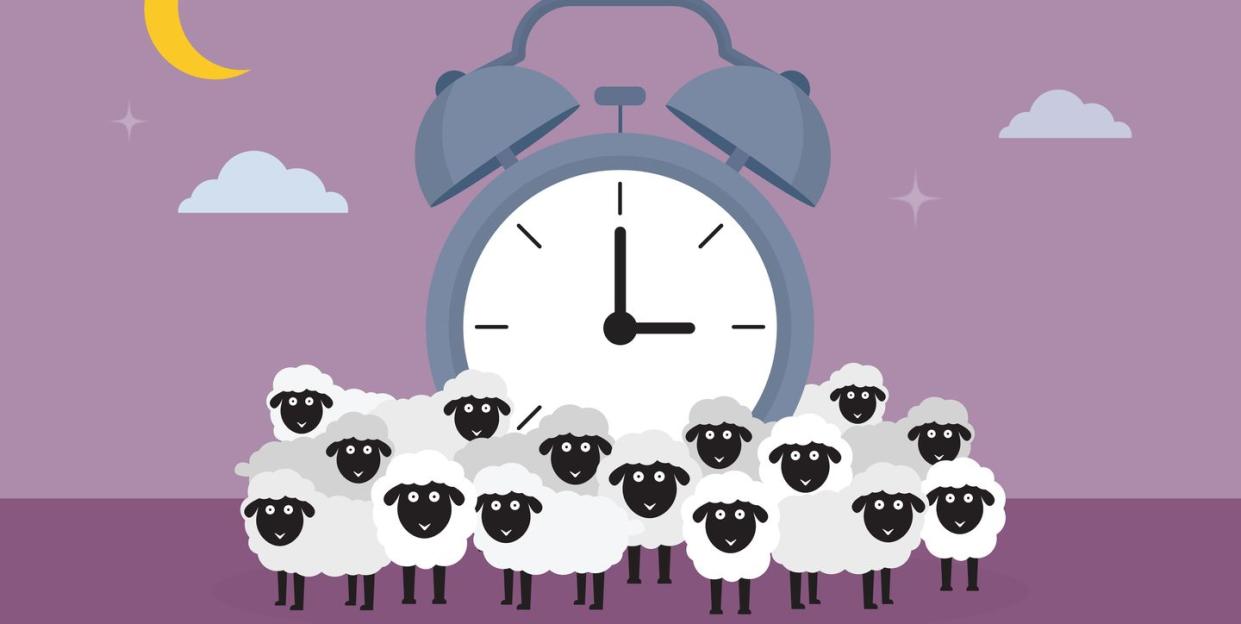' Insomnia is not just a night-time problem, it also impacts quality of life hugely'

Whether or not you use the word insomnia, you probably have an idea of what it looks like and either you or a loved one have experienced it at some point in your life.
The scientifically acknowledged definition of insomnia is a difficulty in getting to sleep and/or staying asleep, occurring three or more nights per week, for at least three months. In fact, in my clinics the average duration of insomnia is more like five to 10 years.
Impairing daytime as well as night-time
Insomnia is not just a night-time problem, it also impacts quality of life hugely. It typically results in depleted energy, impaired mood and so-called “brain fog”. In addition, science indicates that people with insomnia are twice as likely to develop depression, and that they have an increased vulnerability to type 2 diabetes and to hypertension. Affecting as many as 60% of women in the lead up and the period after menopause, insomnia is clearly not a trivial complaint.[1]
If on the one hand lack of sleep can become risky to our health, on the flip side sleep is an important healer that helps us recover physically as well as regulate our emotions, consolidate our learning and memory, and develop our immune responses.
Keeping you up at night: the racing mind
I have spent the last 40 years trying to understand and find the best solution for the phenomenon of insomnia. I have spoken to countless thousands of patients and research participants, and while for many people insomnia may be a short-term issue, for many others it becomes a long-term disorder. A stressor such as the birth of a new baby or hormonal changes during the menopause, may be a starting point, but people generally resume normal sleep after a period.
Stress is not the cause of chronic insomnia, rather it’s the vicious cycle that develops around the fear of not sleeping and the unsuccessful struggle to sleep that contribute to making it harder to find a good night’s rest. While sleeping pills are acceptable for a few nights’ use they are not recommended for long-term use and can even cause addiction.
Breaking the cycle: Cognitive Behavioural Therapy
So how can you break this vicious cycle? Once insomnia becomes chronic, the only scientifically proven treatment that is effective is cognitive behavioural therapy (CBT).
CBT helps build a healthy new sleep pattern based on your biological rhythms. These are not identical for every human being so finding what works for you is key. CBT can help you to discover how much sleep you need, get it into a reliable pattern, and help you calm that racing mind that is the enemy of sleep.
For example, overcoming the self-defeating worry about whether you will get enough shut-eye or not. CBT is thus a collection of therapies that you can draw on to discover what works for you. Critically, it’s not a set of “tips” but evidence-based treatment. That’s why CBT is in all the clinical guidelines worldwide
Science-based insomnia-busting
I recently encapsulated these concepts into ‘5 Principles of Good Sleep Health’ to offer a first line intervention for people with poor sleep and mild insomnia symptoms. These are as follows:
Value your sleep: Sleep plays a central role in supporting the immune system, laying the groundwork for long-term health and mental well-being. Quality of life and sleep are inextricably linked.
Prioritise your sleep: Whatever your profession or your pressures in life, understanding the value of sleep should help you banish any guilt about making it a priority. Your physical health, relationships and mental health all depend on sleep.
Personalise your sleep: There is no set amount of sleep that you need to achieve; everyone has a different number of required hours and even slightly different sleep schedules. One thing I would recommend, however, is generally trying to align sleep to “dark” hours and wakefulness to “daylight” hours to respect natural biorhythms.
Trust your sleep: Because sleep is a natural process, your body knows how to go about it and it need not be “driven”. That is why CBT is so successful: CBT treatment effectively restores and strengthens your existing natural capacity for sleep.
Protect your sleep: Establishing patterns that lead towards sleep can help prepare your body to fall asleep. These include avoiding activating or hyperactivating activities that set your mind racing like checking emails and scrolling through social media.
Insomnia is a hugely wide-spread disorder that is far too often overlooked. Millions of people live with insomnia and poor sleep and need to get back into healthy sleeping habits and begin to enjoy life – as well as rest again. Unfortunately, waiting times to access CBT can be extremely long, leaving people with little option but to resort to sleeping tablets.
To help these people, we have developed a digital CBT treatment called Sleepio, a tool that provides a drug-free solution to sleepless nights. Thanks to Sleepio it is now possible to get to grips with sleep problems when and where people choose, accessing quality, scientifically proven treatment.
[1] Jones HJ, Zak R, Lee KA. Sleep disturbances in midlife women at the cusp of the menopausal transition. J Clin Sleep Med. 2018;14(7):1127–1133.
More sleep stories...
We try the new Sealy Recharge mattress (made in collaboration with Women's Health!)
Luxe sleep retreats to check-in to when you need a break (and a good ZZZ)
You Might Also Like



